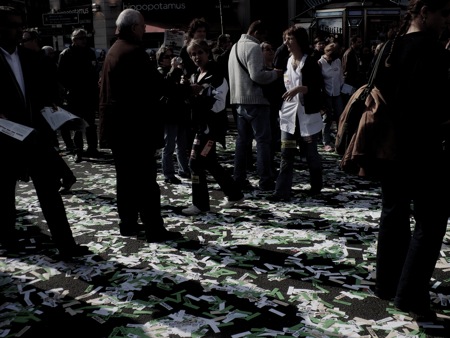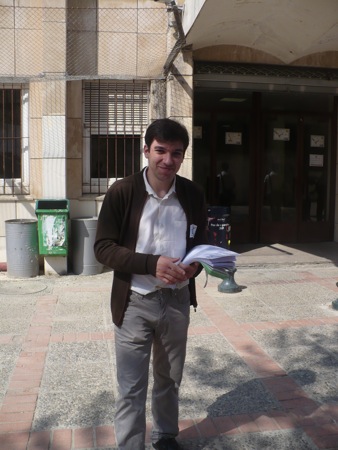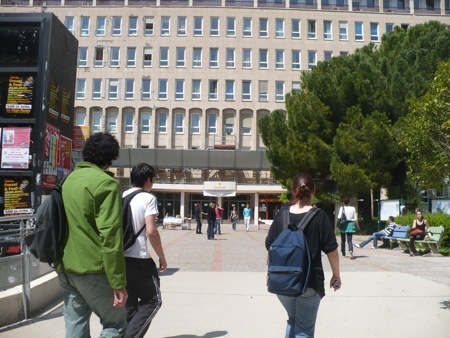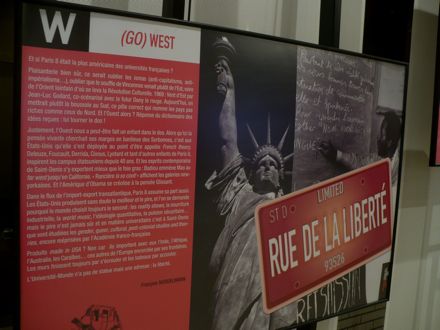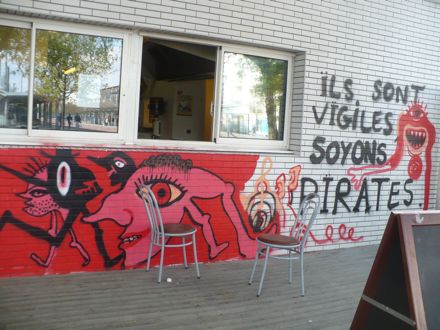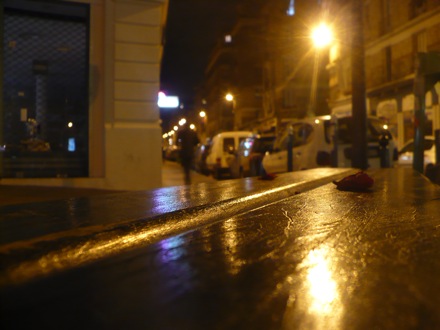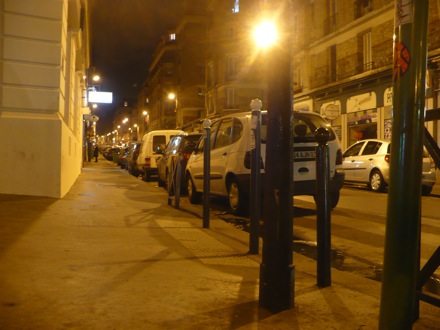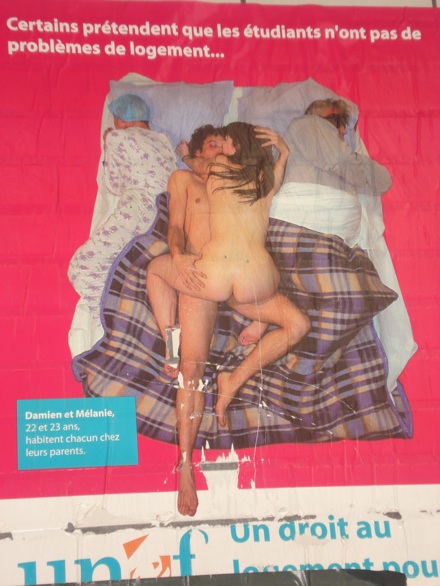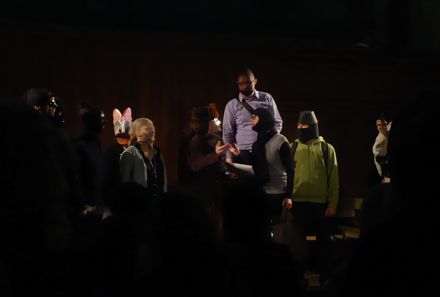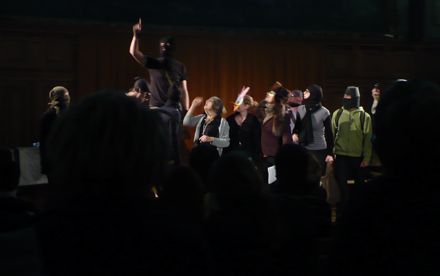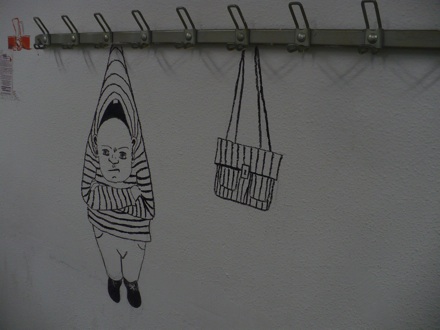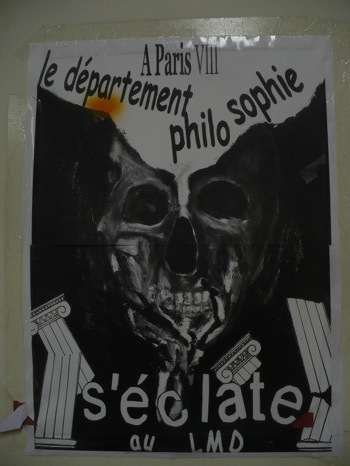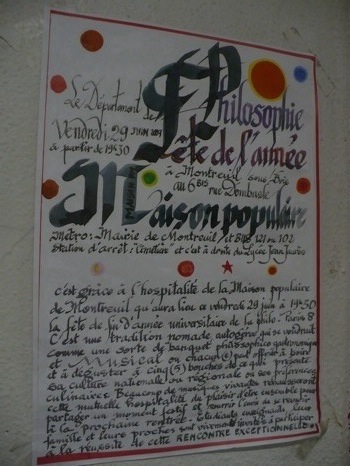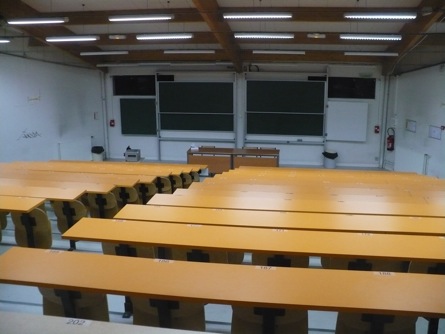Madame Minister,
For the past two years, we—teachers, researchers, staff and students—have declared our total disagreement with the LRU university law, with the teachers’ education reform, and more generally with the spirit guiding the majority of measures and initiatives that come out of your ministry.
In spite of the longest strike the university world has ever known, you have refused all negotiations on the universities’ status, concerning yourself solely with your career as a politician.
In spite of last year’s general refusal to fill out the auditing forms that inaugurated the teachers’ education reform, this year your government is set to continue every measure that brought us out in the streets last year. You are even adding dangerous, aberrant rules about internships.
Madame Minister, our profession does not easily accommodate resignation.
Research, creativity and the transmission of knowledge all imply a freedom quite at odds with the reforms, these reforms that are turning us into petty administrators of social selection. For us to accept these reforms in silence would amount to renouncing our own idea of what a university should be, a university bolstered by a centuries-long tradition of research, a university engaged in creating a future that cannot be dictated by short-term economic needs.
Madame Minister, the university will not understand itself, it will not manage itself, and it will not evaluate itself in terms of productivity and profitability, for it is based on the inherent risk of research. This risk is at the base of the formative gesture that brings students and professors together, and it falls to universities in the public service to keep this risk alive. Yes, the university needs reform—indeed, we know this better than you do, we teachers, researchers, staff and students who ARE the university in all its contradictions, and who are devoted to preserving and restoring a democratic future for the institution.
Madame Minister, on every one of our campuses, we are working to invalidate each one of the measures you hoped to use in your project.
Madame Minister, beyond these points of resistance and days of protest that will mark our defense of public education from nursery school to the university, we believe it is indispensable to show the public that we resist your policy of dismantling the university, to re-establish the truth against your lies, and to remind the world that the university is a common good that should not be open to corruption by politics. This then is the reason why, having already held vigil for a thousand hours last spring in front of the town hall, we are now going to revive this Infinite Round of the Stubborn. You can find us every Monday starting at 6pm, from here until the day when real negotiations over the universities’ status are opened.
Our stubbornness is total because, in wanting to transform our universities into corporations, you have gone past the limit of what is tolerable.
Our stubbornness is total because we are in no respect inclined to renounce the freedom without which there would be neither research nor creativity.
Our stubbornness is total because, whatever the difficulties of battling your policies, we know that the university community is massively hostile to them.
Our stubbornness is total because of the high stakes we defend, stakes which go far beyond any simple categorical reading of this conflict.
[Second Page:]
Why we are stubborn:
-To remind everyone that the university is a common good, one not open to corruption by a political ideology.
-Because we refuse a third-rate teacher’s education brought about by the disappearance of practical training.
-Because we refuse a university conceived as a business, thrown open to competition between campuses, between employees, between students.
-To defend everyone’s access to quality education—freely chosen, secular, and free of tuition.
-To defend independent research.
-Because we refuse the coming rises in tuition fees and loans that logically follow from the reforms.
-Because we refuse the social selection that will become part of the university admissions process, as budgets come to be calculated in proportion to graduation rates.
-To show the public our resistance, in the face of the dismantling of the whole system of public services.
AGAINST THE LRU
The Infinite Rounds of the Stubborn
meets every monday starting at 6pm
in front of the Ministry of Higher Education and Research, 1 Rue Descartes
http://rondeinfinie.canalblog.com
[email protected]


